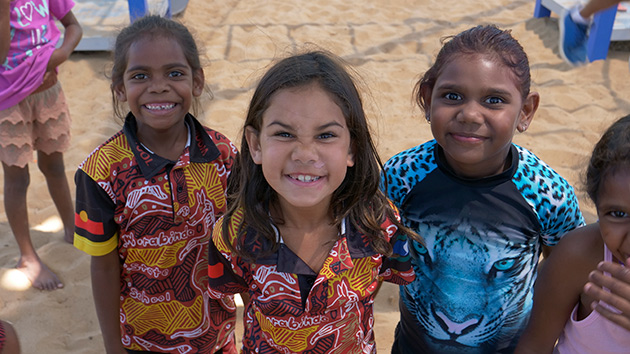On this page
Download this Fact Sheet:
Fact Sheet: Emotional development (3.2 MB, PDF)
What is emotional development?
Emotional development begins at birth
Emotional development involves learning what feelings and emotions are, understanding how and why they occur, recognising your own feelings and those of others, and developing effective ways for managing those feelings.
Emotional development is a complex process that begins in infancy and continues through adulthood. The first emotions that can be recognised in babies include joy, anger, sadness and fear.
As children’s sense of self develops, more complex emotions like shyness, surprise, elation, embarrassment, shame, guilt, pride and empathy emerge. School-aged children and young people are still learning to identify emotions, understand why they happen, and how to manage them appropriately.
Emotional development includes several components
- physical responses (like heart rate, breathing and hormone levels)
- behavioural displays of emotion, i.e. crying when you’re feeling sad
- feelings that children and young people recognise and learn to name
- thoughts and judgments associated with feelings
- action signals (for example, a desire to approach, escape or challenge).
Influences on emotional expression include
- values and beliefs about appropriate and inappropriate ways of expressing emotions that children and young people learn from families, communities and educators
- how effectively children and young people’s emotional needs are usually met
- children and young people’s personalities
- children’s culture and community
- emotional behaviours that children and young people have learned through observation or experience
- the extent to which families and communities are under various kinds of stress.
The rate of emotional development in children and young people varies from person to person. Some children may show a high level of emotional skill development, whereas others may still be developing the capacity to manage their emotions well into adolescence.
Emotional development and sense of self
A person’s sense of self is strongly influenced by their perception of themselves
Knowing that they can be successful at what they do allows children and young people to feel competent and confident – which, in turn, affects their emotional development. By being supported to learn to value their own strengths and efforts, as well as those of others, children and young people develop resilience to bounce back from challenges and hardship.How can educators support emotional development in children and young people?
Providing effective support for children and young people’s emotional development starts with paying attention to their feelings and noticing how they manage them.
Many learning communities incorporate specific programs to teach social and emotional skills. These skills can also be practised through everyday interactions.
Tune in to children and young people’s feelings and emotions.
Some emotions are easily identified, while others are less obvious. Tuning in to children and young people’s emotions involves looking at their body language, listening to what they’re saying and how they’re saying it, and observing their behaviour. This allows you to respond more effectively to their needs and to offer more specific guidance to help them manage their emotions.
Help children and young people recognise and understand emotions
Talking to children and young people and teaching them about emotions helps them to become more aware of their own behaviour and needs, as well as that of others. It also helps them to better manage their own emotions over time. For example, naming feelings like frustration or noticing when someone else is sad.
Set boundaries
Let children and young people know that it’s normal and Ok to have a range of emotions and feelings. Teach language and skills for dealing with strong emotions, such as anger and frustration, in a positive way. For example, encourage them to say how they feel and show them ways to calmly handle frustration, such as breathing. It’s also important to set appropriate boundaries in relation to aggressive, unsafe or inappropriate behaviours.
Be a role model
Showing children and young people different ways you understand and manage emotions helps them learn from your example.
What if you have concerns about a child or young person’s emotional development?
Observing and monitoring each student’s emotional development is important to identify any challenges. You can use the BETLS Observational Tool to help with this.
If you have any concerns, you could raise them with your wellbeing team and approach the child’s family to discuss them. Be sure to approach the discussion with the family with sensitivity and care. Keep in mind that these discussions can be challenging - consider the timing, setting, and your existing relationship.
Be You Professional Learning
Learn more about social and emotional learning (SEL) and teaching for resilience in the Learning Resilience domain.
Learn more about mental health and building mentally healthy communities in the Mentally Healthy Communities domain.
-
Bibliography
Collaborative for Academic, Social, and Emotional Learning (CASEL). (2024). What is the CASEL Framework? Chicago: CASEL. Retrieved from https://casel.org/fundamentals-of-sel/what-is-the-casel-framework/
National Scientific Council on the Developing Child (2004). Young children develop in an environment of relationships. Boston: Harvard University. Retrieved from http://developingchild.harvard.edu/resources/wp1/.
Shonkoff, J.P., & Phillips, D.A. (2000). From neurons to neighbourhoods: The science of early childhood development. Washington: National Academy Press.
